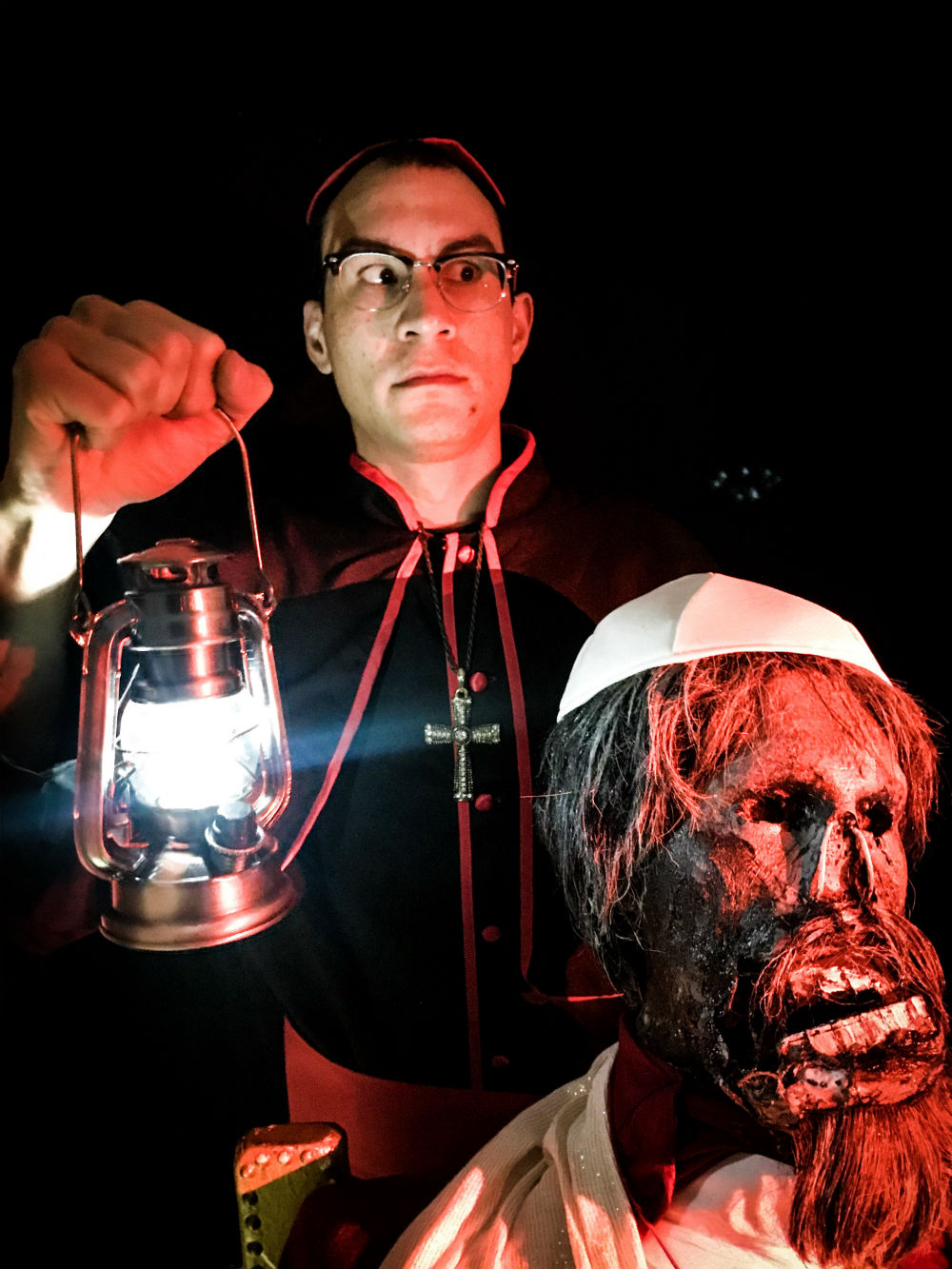[star rating = 3/5]
RFT return to the Edinburgh Festival Fringe with a brand new black comedy exploring the relationship between power and the past, the dangers of ignoring the sensibilities of the masses, and just where to find a new nose at three in the morning.

The plot of absurd comedy Cadaver Synod is taken from real events which took place in Rome during the 9thcentury AD. Pope Stephen VI hopes to quell political instability in Rome and cement his family’s hold on power by conducting a show trial of his predecessor. In order to sufficiently bolster his position he orders that his predecessor Formosus’ corpse be dug up and placed on trial.
RFT bring this obscure bit of historical political theatre to life in their hilarious new production. Fans of morbid history will love the shows dark humour and gory details, while audience members looking for a play relevant to our current political spectacle will enjoy this fresh historical perspective.
The cast members all play to their strengths and have excellent comedic timing. Salt-of-the-earth characters are sometimes the best sources of comedy, especially in a play which revolves around speaking truth to power. The script cleverly simplifies the complicated political climate and exposes the danger of what can happen when leaders begin to believe their own lies.
In keeping with its simple, straight-talking dialogue the show features simple costuming and sets, although it does feature an impressive array of hats as well as the titular (luckily fake!) cadaver. This is a production which knows how to allocate its Fringe budget.
The play follows the comedic duo of undertakers whose job it is to prepare the body for the trial. While their jokes do earn most of the laughs the play does have a tendency to stop dead for them before continuing on with the plot. However, this is a minor and ultimately subjective nit-pick for a show whose very premise is funny enough on it’s own.
Cadaver Synod has a lot to say regarding political spectacle and how this is used to distract from poor leadership, making this an unexpectedly relevant play for the modern political era.